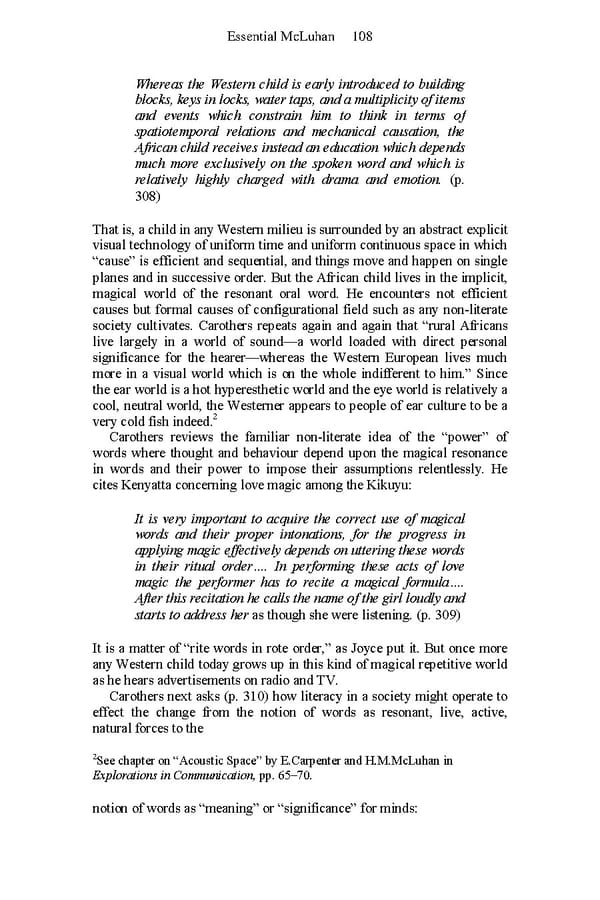Essential McLuhan 108 Whereas the Western child is early introduced to building blocks, keys in locks, water taps, and a multiplicity of items and events which constrain him to think in terms of spatiotemporal relations and mechanical causation, the African child receives instead an education which depends much more exclusively on the spoken word and which is relatively highly charged with drama and emotion. (p. 308) That is, a child in any Western milieu is surrounded by an abstract explicit visual technology of uniform time and uniform continuous space in which “cause” is efficient and sequential, and things move and happen on single planes and in successive order. But the African child lives in the implicit, magical world of the resonant oral word. He encounters not efficient causes but formal causes of configurational field such as any non-literate society cultivates. Carothers repeats again and again that “rural Africans live largely in a world of sound—a world loaded with direct personal significance for the hearer—whereas the Western European lives much more in a visual world which is on the whole indifferent to him.” Since the ear world is a hot hyperesthetic world and the eye world is relatively a cool, neutral world, the Westerner appears to people of ear culture to be a 2 very cold fish indeed. Carothers reviews the familiar non-literate idea of the “power” of words where thought and behaviour depend upon the magical resonance in words and their power to impose their assumptions relentlessly. He cites Kenyatta concerning love magic among the Kikuyu: It is very important to acquire the correct use of magical words and their proper intonations, for the progress in applying magic effectively depends on uttering these words in their ritual order…. In performing these acts of love magic the performer has to recite a magical formula…. After this recitation he calls the name of the girl loudly and starts to address her as though she were listening. (p. 309) It is a matter of “rite words in rote order,” as Joyce put it. But once more any Western child today grows up in this kind of magical repetitive world as he hears advertisements on radio and TV. Carothers next asks (p. 310) how literacy in a society might operate to effect the change from the notion of words as resonant, live, active, natural forces to the 2 See chapter on “Acoustic Space” by E.Carpenter and H.M.McLuhan in Explorations in Communication, pp. 65–70. notion of words as “meaning” or “significance” for minds:
 Essential McLuhan Page 114 Page 116
Essential McLuhan Page 114 Page 116